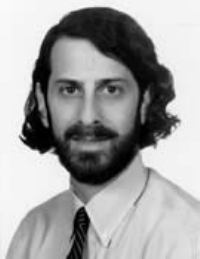Tue |
Laser-Based Molecular Diagnostic Technology for Early Detection of Alzheimer’s DiseaseDr. Lee Goldstein, Boston University, Boston, MA | |
|
Abstract: Alzheimer’s disease (AD) is a major cause of dementia and a leading contributor to morbidity and mortality worldwide. AD is the sixth leading cause of death and third most costly disease in the US. Over 4 million Americans live with AD at a cost of over $100B per year — and these numbers are growing rapidly. Research advances have produced a detailed molecular understanding of the disease that has led to development of many hundreds of new AD therapeutics. However, effective treatment will remain elusive unless coupled with early detection and intervention. Development of novel diagnostic technology for pre-symptomatic disease screening and detection is now recognized as an urgent research priority. Based on discovery of disease-linked Alzheimer amyloid- (A) pathology in the lens of the eye (Goldstein et al., Lancet, 2003), we are developing innovative non-invasive laser-based technology for quantitative non-invasive detection of AD molecular pathology from the very earliest stages of the disease. Our goal is to facilitate diagnostic detection and therapeutic intervention before the onset of cognitive symptoms and irreparable damage to the brain. A new paradigm linking early detection with early intervention holds near-term promise for effective treatment of this devastating disease. Biography: Lee E. Goldstein, M.D., Ph.D. is Associate Professor in Psychiatry, Ophthalmology, Neurology, Pathology & Laboratory Medicine, and Biomedical Engineering at the Boston University School of Medicine, College of Engineering, and Photonics Center. He is Director of the Molecular Aging & Development Laboratory at the Boston University School of Medicine, the Molecular Biophotonics Laboratory at the Boston University Photonics Center, and the Translational Core of the NIA-funded Boston University Alzheimer's Disease Center. Dr. Goldstein is also Director of the newly established NCRR/NSF sponsored Center for Biometals & Metallomics (CBM), the first and only shared bioanalytical resource in the nation dedicated to biomedical ultra-trace elemental and isotopic profiling. Dr. Goldstein is a Phi Beta Kappa graduate of Columbia University and received M.D. and Ph.D. (Neuroscience) degrees from Yale University. He completed an internship in internal medicine and clinical fellowship in psychiatry at the Massachusetts General Hospital, where he also conducted postdoctoral research in Alzheimer's disease with Rudolph Tanzi, Ph.D. and Ashley Bush, M.D., Ph.D. at the MGH Genetics & Aging Research Unit. In 2001, Dr. Goldstein moved to the Brigham & Women's Hospital where he established an independent laboratory as an NIH/AFAR Beeson Scholar in Aging Research and Assistant Professor in Psychiatry at Harvard Medical School. The research team was recently recruited to Boston University and moved to new laboratories at Boston Medical Center and the Boston University Photonics Center in 2008. Dr. Goldstein and his team discovered Alzheimer’s disease molecular pathology in the lens of the eye (Goldstein et al., Lancet, 2003), a finding that is leading his team to develop innovative laser-based molecular diagnostic technology for screening and early detection of Alzheimer’s disease. He is founding scientist and scientific consultant to Neuroptix Corporation, a laser diagnostics technology company in Acton, MA. Dr. Goldstein is a Diplomat of the American College of Neurology and Psychiatry and is the recipient of awards from Harvard Medical School, Alzheimer’s Association, National Institutes of Health, and the Optical Society of America. Research in the Goldstein laboratories is supported by the National Institutes of Health, National Science Foundation, NASA, US Dept of Energy, Army Research Laboratory, Boston University Alzheimer’s Disease Center, American Federation for Aging Research, Alzheimer’s Association, American Health Assistance Foundation, Ellison Foundation, Boston University, and an anonymous foundation. Correspondence: lgold@bu.edu |
IEEE Photonics Society
Boston Photonics Society Chapter
Boston Chapter of the IEEE Photonics Society
Biomedical Optics Workshop
Tuesday, March 16, 23, 30, April 6, 13, 2010, 7:00-9:30 PM
Located at Boston University Photonics Center, 8 Saint Mary's Street, Boston, MA, USA
For more information on the technical content of the workshop, contact either:
1) Farhad Hakimi (fhakimi@ieee.org), Biomedical Opitcs Workshop Committee Chair
2) Selim Ünlü (selim@bu.edu), Biomedical Opitcs Workshop Committee Co-Chair
3) Reuel Swint (swint@ieee.org), Boston LEOS Chair
Designed and built by Matthew Emsley © 2024
